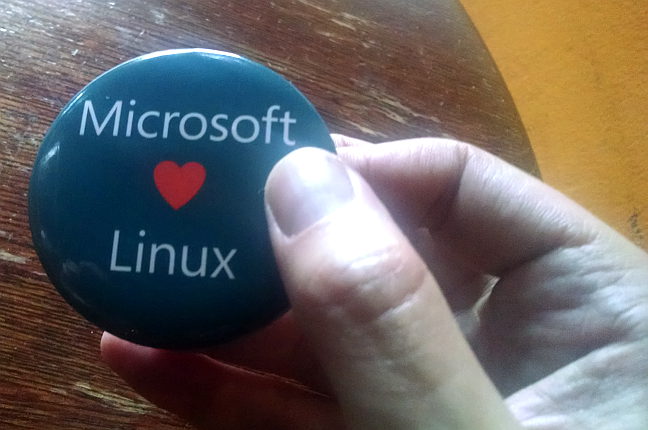
--Microsoft's chief evangelist
SEVERAL days ago LinuxCon ended. It was probably the biggest Linux-centric conference not only in the US but in the whole world. Microsoft, as usual, infiltrated and "injected Microsoft content into the conference," to use the company's own words. There's a reason for this.
"This once again shows us an inherent weakness in the operations of the Linux Foundation. Microsoft moles or provocateurs managed to get in and change the agenda after they had paid."We give some credit to Sean Kerner for writing about this as almost nobody else did. The first article from Kerner reminded us that the Linux Foundation is selling out again. It lets an anti-Linux company speak at Linuxcon because this company paid the Linux Foundation. Would the Linux Foundation also let SCO give some talks if SCO paid (hypothetical question as SCO is a defunct company now)? Remember that Intel (key funder of the Linux Foundation and OSDL before it) helped fund a SCO conference.
Kerner wrote repeatedly about this, noting that "Microsoft was a sponsor of the event and also had a booth in the vendor area [...] When Jim Zemlin, executive director of the Linux Foundation, held up a Microsoft Tux penguin during a keynote session on Aug. 18, he was actually heckled."
It is reported that these 'Microsoft loves Linux' buttons (see below) emerged at this event at well.
People who paid a lot of money to attend this event are reportedly upset, to use an understatement. And rightly so. See the quote at the top again. Microsoft succeeds at discrediting the event. Microsoft sure delivered its entryism first thing in the morning as "LinuxCon [was] infiltrated by Microsoft," to quote one of our readers who sent us mail about it, as several other have done since then (many are furious as the Linux Foundation serves to legitimise Microsoft, in exchange for generous, self-serving payments).
This once again shows us an inherent weakness in the operations of the Linux Foundation. Microsoft moles or provocateurs managed to get in and change the agenda after they had paid. Microsoft entryism needs to be recognised as a potent threat and tackled accordingly. Such entryism and marketing not only reduces the popularity of GNU/Linux but also removes freedom because anything that Microsoft does around Linux merely promotes proprietary software like Hyper-V, Windows, and so on.
A third and final such article from Sean Kerner (not that it's an issue, as he clearly helped raise awareness of what Microsoft had sneakily done again) got titled "LinuxCon Highlights: From Linus Torvalds to Microsoft", demonstrating quite well that Microsoft interjected itself into the competition and it worked; it served to distract almost everybody and that's how people may remember this event.
For those who believe that Microsoft actually likes GNU/Linux, recall the 6-part series below and see what Microsoft is distributing in FOSS conferences as though it is trying to deliberately provoke and upset attendees.

Photo credit: Neil McAllister